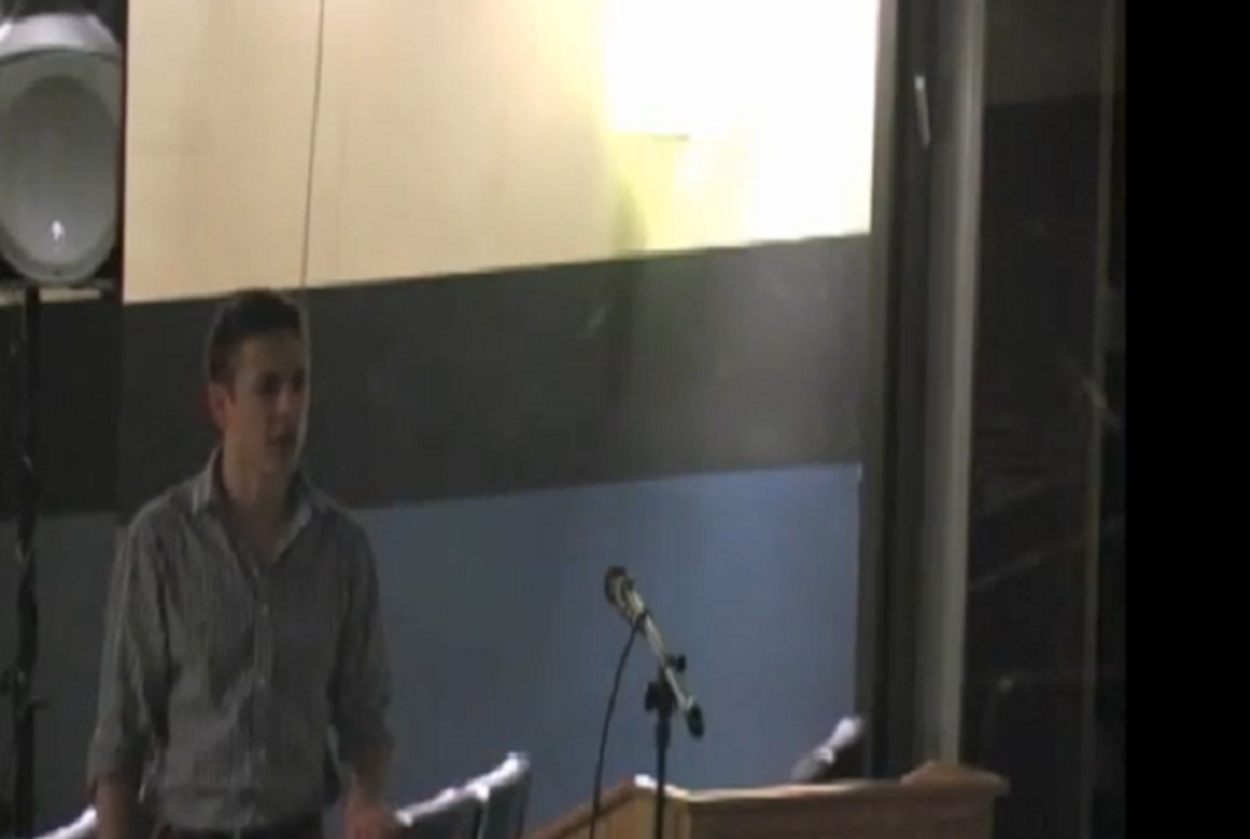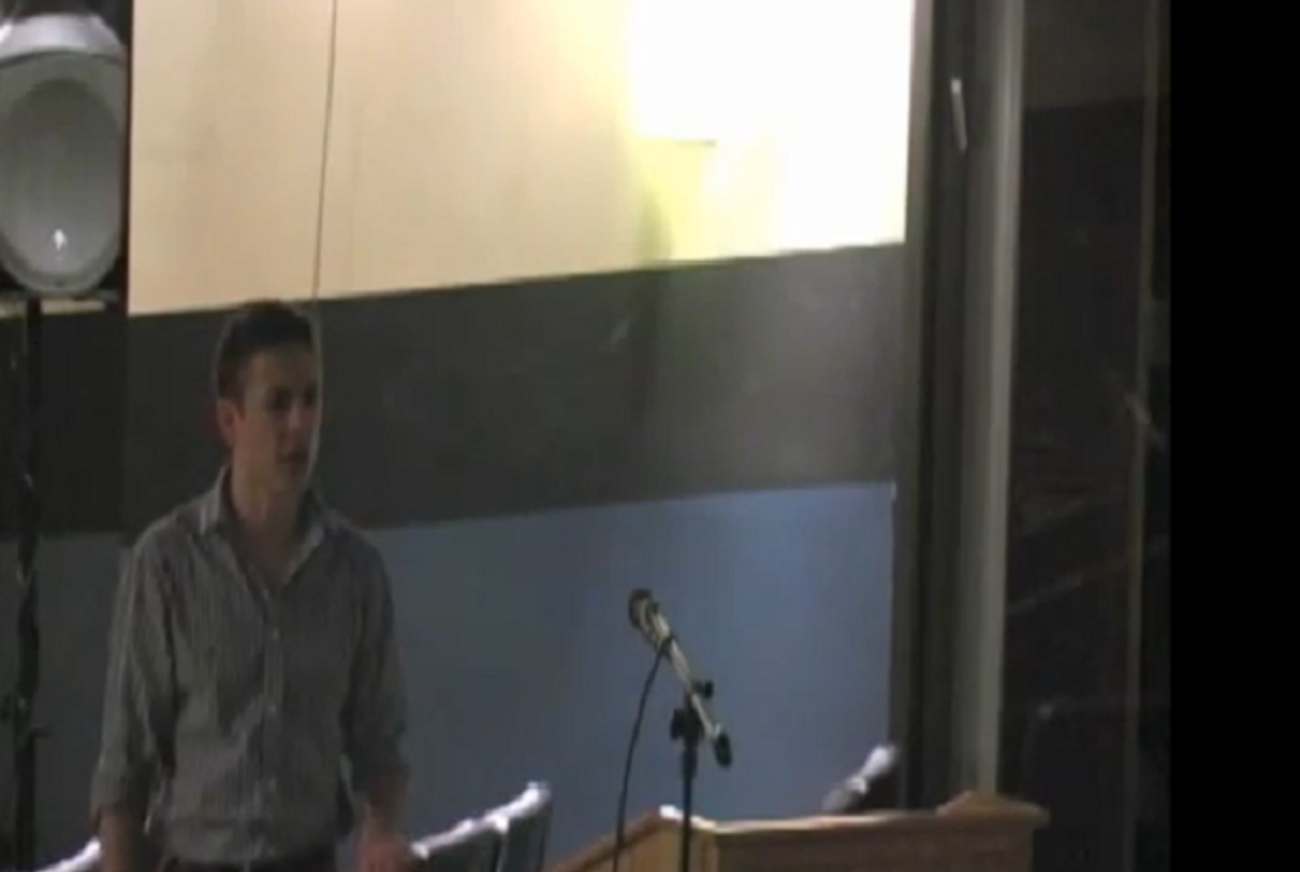On Judging a Yeshiva Poetry Slam
A new art form has a religious following




Yeshiva and poetry don’t go together. At least they didn’t in my high school.
Getting caught in my all-boys Yeshiva high school with a book of poetry was the equivalent of getting caught with your pants down in the first-floor bathroom stall that never managed to lock properly. My only introductions to poetry were the occasional poems an administrator hung on a bulletin board and the flirtatious gazes (I imagined) I got from a spiky-haired English teacher who was finishing up her MFA in poetry at NYU.
This partially explains my surprise when Aaron Roller, co-founder of the Yeshiva High School Poetry Slam, asked me to judge a competition. Aaron and I attended the same yeshiva high school; Aaron was more arts-oriented than I was and less concerned with fitting in. I probably smoked more pot than he did. When we met yesterday, the day of the slam, I brought up the lack of arts education in our own high school.
“That was the motivation,” he explained as we drove to SAR High School in Riverdale, where the contest took place. “Kids who are into art are usually a minority. There’s no shortage of teams for athletes.”
Roller, along with educators Hillel Goldman and Hillel Broder, launched the league two years ago. They typically run about three slams in schools across the tri-state area. He believes that the league is a testament to the success of yeshiva education. All three co-founders attended yeshiva high school.
“We’re in an education milieu that allows people to say, ‘This wasn’t in my high school education, but I want to bring it here,” he said.
Or as Broder, a teacher at SAR, put it, “I only learned I loved poetry when I was in college.”
As part of the competition, students from eight religious high schools created an original free-verse poem somehow related to the Purim and a pantoum.
What surprised me more than the existence of the league was how good the poets were. Some kids were just trying to get out of class, but some had genuine talent. Frisch student Tamar Palgon began her poem with a line I swore could have been in a modern anthology: “I immediately stopped listening to 50s music.” Zach Smart, a senior in SAR, gave a blistering account of the disappointing lives of Ethiopian immigrants in Israel. Here is video of his performance.
Celeste Marcus, a student at the Kohelet Yeshiva High School in Philadelphia, repeated her pantoum refrain, “Surely Torah is more than a cold code of conduct,” until it became a bitter anthem.
My favorite poet of the event, Noa Baker, a tiny blonde also from Kohelet, rapped her free-verse poem to a hyperkinetic crescendo around the number fourteen for the Jewish date of Purim.
Some lines the students uttered stuck with me hours later as a rode the train back to Brooklyn. For every student who wrote an honest, but cliché poem about searching for God, there was a student who was having fun with words, like SAR’s Yishai Chamudot, who wrote “You look down the well of wishing you were someone else.”
In the end, the judges winged it, taking into account the number of schools, presentations and originality. We gave out five awards to the 44 brave high school students.
My high school managed to place two poets in the final round. I pushed heavily for one, perhaps undeservedly. I saw myself in the shaggy kid from my high school, bereft of swagger the other poets had, as he swayed back and forth when he read his poem, as if in prayer. He didn’t win.
Michael Orbach is a writer living in New York.